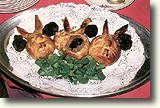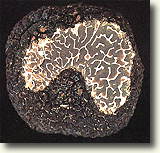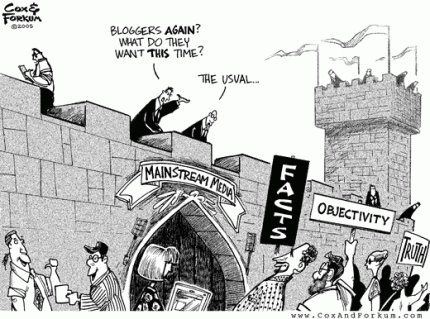|
|
|
|
|
Wednesday, January 27
Above and beyond the call of duty
All I did was help her into the car, take her home and help her into her house and make sure that she had locked the door before I left. Nothing wrong with that as I will do that for anyone as its all part of the service we offer.
She had contacted the office and asked me to call round for a tip to show her appreciation.
Its just nice to be remembered after a month but there's no need for a tip as it was just an everyday routine to me.
It was really kind of her to ring the office and thank me for doing my job and helping her in any way I could and its nice to hear these things as well.
Monday, January 25
Forgotton goods
Not a problem, I turned round, went back and waited a good 5 minutes for him to come back out. The journey continued and when I asked for the fare of £3.60p he gave me £5 and told me to keep the change.
He then said to me that I couldhave the change for "Not getting angry with him for having to turn back and wait". I can't understand this bit. Why should any driver get angry with a customer who wanted to turn back because he had forgot something
We are there to provide a public service which means being polite and courteous and there really isnbt any need to get angry with a customer when they have forgot something. Its one of those things.
It just makes me think that this guy has had bad dealings with a driver in the past.
Friday, January 22
Another club closes

Its not good news for those that visit there on a regular basis but its happening all over the UK. Places closing down and being converted to houses or flats, never to be used as a pub ever again.
Barrow In Furness used to have lots of pubs and a history of them all can be found at www.barrowpubs.co.uk
Wednesday, January 20
Activities for children in the Dordogne
 Do you wonder what you are going to do with the young 'uns when you come to the Dordogne this summer to laze in the sun, go wine tasting or spending leisurely afternoons exploring the beautiful bastide towns, fresh produce or antique markets or the glorious countryside?
Do you wonder what you are going to do with the young 'uns when you come to the Dordogne this summer to laze in the sun, go wine tasting or spending leisurely afternoons exploring the beautiful bastide towns, fresh produce or antique markets or the glorious countryside?What better and more enjoyable for the children than creative workshops with a wonderful local artist?
Zigou has a studio which the children will love -- colourful and exciting and fascinating -- as is Zigou herself! She offers Art Workshops at Zigou Studio in Bergerac for children between the ages of 3 to 16, in painting, modelling, collage and drawing, every Wednesday and Saturday. The groups are small, and she offers private sessions as well. Zigou speaks excellent English, so language will not be a problem.
For more information: Tel:06 81 52 38 78.
Click on Link:
Chateau Lalinde : The perfect venue for your event
Tuesday, January 19
The Funeral Party
These sad events bring families together, people who havnt seen each other for ages and you would think they would be wanting to talk to each other but when the beer flows all they want to do is fight and argue,
It happened today and even in the back of the car on the journey they were trying to knock hell out of each other.
I did wanr them but they didnt take any notice. I stopped the car and told them all to get out. They apologised and promised that they would sort their differences out when they got home.
The fighting stopped but the arguing and insults continued.
And what was the reason for all this. People who hadnt seen the deceased in ages were trying to stake a claim to the will.
Its a sad case but no excuse for fighting with each other. They should respect the dead persons wishes and get on with life
Monday, January 18
The truffle season has begun!
Many simply cannot understand the sense of truffles. Foul smelling black roots sniffed and rooted out by pigs or dogs and sold on the world market for (not such )small fortunes! A yield of 10 - 15kg per hectare of any other crop would seem pointless to pursue, but truffles are an exception. With growers getting € 500 / Kilo and up to € 800 /kilo at festive times, it is definitely a worthwhile occupation.
The most important truffle market in Dordogne is that which is held at Saint Alvère, on Mondays. The official truffle season runs from today through to the begining of March next year.

A perfect truffle should be firm, have a good aroma and full of taste. It breathes and absorbs oxygen and rejects carbon dioxide and other gases containing its aroma. After a while it oxidates and loses its aroma. It is this clear that once ripe, it should be eaten as soon as possible, whence the need to buy straight from the market, or from retailers with recent supplies.
The Truffe noire du Périgord fresh and grated improves everything that is in contact with it. It goes very well with celery, shallots, and well reduced sweet onions, artichokes, avocados, jerusalem artichokes. It is important to trap its aroma, either in fats such as oil, butter, cream, or by infusion in a sauce or it should be added at the end of cooking, or enclosed in puff pastry, brioche, bread, or in slivers under the skin of poultry.
The best Brumales can be used in sauces. Aestivum is only used grated pasta and risotto.
The Varieties Harvested
...and their gastronomic value
Tuber Melanosporum

Called the black truffle of Périgord, it is harvested between November and March.
Epidermis wartish brown with red reflections Soil marbled with white on anthracite base colour. Smells of forest undergrowth and damp earth, roasted dry fruits.
Taste: finely peppered, recalling its aromatic composition, long in the mouth. Only admitted in Grade 1; Ste Alvère.
 Tuber Brumale Harvested between November and March, on the same sites as Mélano which it strongly rivals.
Tuber Brumale Harvested between November and March, on the same sites as Mélano which it strongly rivals.Darker epidermis, flaking off easily. Soil less subtly marbled with a grey background. Smells of turnip, nuancée with garlic (suavum version) ethereal, disagreeable (version moschatu).
Taste: Very peppery and characteristically turnipy, relegated to Grade 2 Ste Alvère.
Tuber Aestivum
 Harvested between May and September sometimes later..
Harvested between May and September sometimes later..Epidermis dark brown, large pyramid-shaped wartlike deformations, striped in both directions. Soil: finely marbled with branches on a white background, veering towards grey matures well.
Subtle smell of underwood.
Taste of forest mushrooms.

Tuber Uncinatum
Called "Bourgogne", closely related to the previous, quite rare in Dordogne.
The best season is between September and December. Same visual aspect, soil; chocolate, smell and taste more pronounced.
Click on Link:
Chateau Lalinde : The perfect venue for your event
Sunday, January 17
Thursday, January 14
A Year in Provence/Twenty years in Provence and Peter Mayle still loves it!
Provence has “added a dimension of sheer contentment and enrichment” to Peter Mayle’s life – not just for the series of books that have been translated into 28 languages and brought in millions in sales but for its lifestyle, people, customs and gastronomy.
 It has been 20 years since he made the region his home and, seemingly by accident, wrote A Year in Provence
It has been 20 years since he made the region his home and, seemingly by accident, wrote A Year in ProvenceMayle, with his wife Jennie, had stumbled into Provence in the early 80s, having never been there before. They were hooked, and in 1986 sold up in the UK, and relocated to an old farmhouse in the Luberon. Apart from a brief absence, they have lived in the region ever since.
The story goes that his original intention was to write a novel, they had enough cash for six months. But while renovating their Ménerbes house Mayle, now 70, became so fascinated by the character of Provence and the larger than life characters, that instead of a novel, he wrote a few opening pages of a diary and sent them to his agent who, fortunately, knew a gem when he saw one.
So popular was the book, the house was under siege by a constant stream of uninvited callers and autograph hunters. Complete strangers would wander through the garden, some even taking a dip in the pool.
Privacy became almost impossible and on one occasion he found a tabloid photographer lurking in the bushes around the pool, apparently hoping to “see someone naked”. Finally, he had to sell up. They moved to Long Island in south-eastern New York for four years in what sounds a very glamorous solution. “But it wasn’t Provence. I have lived at various times in London, New York, Devon, Barbados and the Bahamas. For me nothing comes close to Provence.”
He enjoys the democratic environment of French life, a lack of class structure and the polite good manners. “It truly is a democratic country, and there is no self-consciousness about it.” These days, and with the experience of Ménerbes behind him, he takes great care of his privacy preferring to meet reporters at his favourite café in Lourmarin, the village of just 1,000 people where he now lives.
 Although he loves his visits to Paris, always staying on the Left Bank, and eating at favourite one-star restaurants, he says he has become the devotee of the simple life, a particular pleasure being Lourmarin’s Friday morning market where he always bumps into friends. A more typical day sees him up early: “I take the dogs for a walk, and after breakfast I write for three or four hours, 500-600 words, until one o’clock. “After lunch I usually spend the afternoons doing research or working in the garden.
Although he loves his visits to Paris, always staying on the Left Bank, and eating at favourite one-star restaurants, he says he has become the devotee of the simple life, a particular pleasure being Lourmarin’s Friday morning market where he always bumps into friends. A more typical day sees him up early: “I take the dogs for a walk, and after breakfast I write for three or four hours, 500-600 words, until one o’clock. “After lunch I usually spend the afternoons doing research or working in the garden.“I have an evening walk, when I think, and always revise what I have written before going to bed.”
That does not mean the books are constantly rewritten: “I tend not to leave things until they are half way decent – until I know they work.”
Asked if there was a particular book that was more troublesome to write, he suggested: “Possibly my A-Z of Provence. There was so much information my problem was what to leave out.
He felt that style was lacking in the BBC Television version of his book and he admitted that he was disappointed with the way it turned out.
“It came across as a story about retirement which was a long way from the truth. And John Thaw, who played me, seemed to be in a perpetually bad mood, whereas I was absolutely delighted with my new life in France.”
He was, however, quite content with Ridley Scott’s interpretation of his A Good Year, with Russell Crowe. Although not exactly the scenario that was written in the book “as a light romantic comedy in such a glorious setting I enjoyed it.”
Journalism never appealed but “advertising seemed like much more fun and it was better paid”. In the 60s he went to New York, working for advertising giants David Ogilvy and George Lois and believes writing advertising copy imposed disciplines that have been vital in his new career. “You are obliged to stick to the plot – to be concise, informative and if possible entertaining. These are not bad qualities for a writer to cultivate.”
Mayle sums up his strengths, saying: “I am well organised, determined – some, including my wife, would say stubborn – and I have a robust sense of humour that helps in dealing with life’s problems.”
With four of his children living in the US and one in England and with seven grandchildren they exchange visits as often as is possible but they always keep in touch. One thing he does notice on his visits is the Francophobia that still infects UK media.
“I am surprised by the degree of resentment shown by some British towards the French. It is pathetic, ignorant and spiteful, and so shrill it is impossible to take seriously.” There are no signs of Peter Mayle easing himself into retirement – despite that BBC portrayal – and he says “with luck” he would like to write a “book every two years – either fiction or non-fiction – until I keel over. God knows there is plenty to write about.”
He laughs as he admits that he always writes with “tongue very firmly in cheek” and adds: “I do not take anything too seriously. You have to, life is too short'.
The background
When A Year in Provence was first published in hardback in 1989 it was an instant sensation and has since sold five million copies. It brought thousands of visitors to the region and almost as many with money to buy themselves a share of the lifestyle. Some fans went too far and intruded right into his home and garden – as recounted in his 1991 book Toujours Provence where he finds people sitting in his kitchen.
His other French books include:
Expensive Habits 1992, Hotel Pastis 1993, A Dog’s Life 1995, Anything Considered 1996, Chasing Cezanne 1998, Encore Provence 2000, Bon Appetit 2001, A Good Year 2004, Confessions of a French Baker 2005, Provence A-Z 2006.
The latest book, The Vintage Caper, is a crime novel set in Hollywood, Paris, Bordeaux, and Marseille where Mayle gets the chance to use his wine knowledge and include tasting notes on the likes of Lynch-Bages and Léoville Barton.
Excerpts from Connexion December 2009
Click on Link:
Chateau Lalinde : The perfect venue for your event
The Socialist Party suggests vote for expats!
It is about time the Socialist party comes up with
 a workable and realistic recommendation: to give the vote to expats living in France. Is this desperation in seeking votes to get back into power? Possibly they think this a clever ploy, but do they underestimate the intelligence of the thinking expat?
a workable and realistic recommendation: to give the vote to expats living in France. Is this desperation in seeking votes to get back into power? Possibly they think this a clever ploy, but do they underestimate the intelligence of the thinking expat?Connexion reports that every foreign resident in France could win the right to vote in local elections under a new law being drawn up by the Socialist Party. Party leader Martine Aubry brought up the issue of expats' voting rights in a speech yesterday ahead of the regional elections in March, which non-French residents are not allowed to participate in. She said a bill would be put forward in parliament in March, and said Nicolas Sarkozy should encourage his governing UMP party to support it.
"Let's move away from the discourse about integration and foreigners," Ms Aubry said. "Enough of that - we need to take action."
Since 2001, expats in France who come from an EU country have been allowed to vote - and stand - in municipal elections. The PS law would extend this to all foreign residents. Nicolas Sarkozy has said in the past that he is in favour of such a move "on an intellectual level".
Immigration Minister Eric Besson also supports the idea, but says it would be premature to begin the debate now - preferring some time in the next ten years. According to Le Figaro, the left has suggested giving non-French residents the right to vote for the past 30 years. It was one of François Mitterrand's 1981 election pledges.
Click on Link:
Chateau Lalinde : The perfect venue for your event
criminals licensed to drive taxis
Criminals with convictions for offences such as indecent assault and drug dealing are knowingly being licensed to operate as taxi drivers, an investigation by the BBC programme Inside Out West Midlands has revealed.
Freedom of Information requests to councils and police authorities across the West Midlands region discovered that over the past three years 209 people with previous convictions have been given a licence, despite criminal records checks being carried out.
In Wolverhampton, a man who between 1985 and 2005 had carried out more than 30 offences was, in 2006, deemed suitable to become a taxi driver.
A spokesman for Wolverhampton City Council said the licensing of private hire and hackney carriages was taken seriously.
"The council has received no complaints regarding this driver since the private licence was granted in 2006," the spokesman said.
There are no official rules about licensing taxi drivers. Instead, councils tend to follow various guidelines, one of which is issued by the Department of Transport.
In Worcester, there are several drivers with criminal convictions.
A spokesman for the council's licensing committee said they followed guidelines issued by the Metropolitan Police and by the Lord Chief Justice.
"The third criteria is whether we would allow our daughter, if [we] had one, to get in the cab," a spokesman said.
He said convictions for drugs and sexual offences were "a complete no no" but added that was not stipulated in the council's guidelines.
A spokesman for the National Taxi Association said people with previous convictions tended to have their applications decided on merit.
Threats to kill
"If someone does have a lot of previous convictions he is likely to have to go before a council and explain himself," he said.
More checks to police authorities revealed that 250 crimes had been carried out by licensed taxi drivers over the past three years, including rape and making threats to kill.
The National Taxi Association spokesman said magistrates and police would inform a council of a conviction.
"If it is a serious offence they have the power to suspend a driver," he said.
In November 2009, Stoke-on-Trent taxi driver Mohammed Qaddier was found guilty of causing death by dangerous driving.
Katie Bennett, 21, suffered massive head injuries when she tumbled from the cab in Newchapel in May 2008.
The Inside Out investigation revealed that Qaddier had previously had his licence taken away from him by the city council for plying his trade illegally.
In 2004, it was given back to him by the city's magistrates.
Her father Philip Bennett said the fact that people with convictions were getting jobs as drivers was scandalous.
"Whoever is putting them in a position of taxi driving, with those sort of convictions, wants their heads feeling.
"They are no better than the people they are giving licences to," he said.
Last year, councils across the West Midlands region took £4.5m in taxi licensing fees.
The GMB, the taxi driver's union, said the system needed to be tightened.
"What we don't want is a tick box system saying a check is done and the licence issued," a spokesman said.
"The policy must be robust. It must take into account the nature of the offence and does it have any effect on the job they are doing."
Wolverhampton City Council, and others, have now said they will review their guidelines.
Watch the video.
Sunday, January 10
Icy Conditions and accidents
Its not uncommon to have no snow at all here and yet about 10 miles away it could be thick with it so when we do get the snow, its common sense to assume that everyone else gets it worse.
We did get the snow and drivers just wernt prepared for it. I did see a car very cautiously drive up a street and turn left at the end. He was going very slow and got the front end round but the back end just slid and he then hit a parked car.
This was happening almost everywhere and a lot of the drivers were afraid to work in the snow and the ice.
Today I witnessed something completely out of the blue. We have a few sets of traffic lights in the town which have a left or right turn green arrow filter. The set I was at on the junction of Holker Street and Abbey Road has a left turn filter when approaching from Holker Street.
There is a car in the left hand lane waiting for the filter light and I am in the middle lane wanting to go straight on but I am behind a car at the lights. The green filter came on to allow cars to turn left and our light was still red but the driver of the car in front saw the car to his left set off to turn left and seemed to think that because he has gone then he should do the same and shot straight through the red light.
Goes to show the driver wasn't looking at the lights but lokking at the car to his left and oved when he did.
Luckily there wasnt an accident but its a notorious junction anyway. I guess he had a lucky escape
Saturday, January 9
Chateau Lalinde under snow
The cold continues in Lalinde -- the Southwest of France that 'traditionallly' gets little or no snow! And the result is beautiful alberit slightly chilling!...





(With thanks to Brian and Cheri for sending them to us the photos!)
Click on Link:
Chateau Lalinde : The perfect venue for your event
The Driving Instructor
He told me where he wanted and I set off.... Next thing I hear him say to me is....................
"At the end of the street Turns left. Position yourself correctly and use your mirror."
I was just about to say something when he carried on talking to his wife and when I approcahed a roundabout he then said to me... "Use Mirror, signal and Manoeuvre and get in lane". He then carried on talking to his wife.
At this point I thought he was being a bit sarcastic but he seemed a jolly enough fellow and then I seized the opportunity to ask him what he wanted me to do as he had been giving me instruction all the way.
He went a slight shade of red and said he didnt realise he was doing it and it was out of habit. His wife backed me up this and he was very apologetic.
In fact, he couldn't apologise enough and when I came to the end of the journey he gave me a £10 note and told me to keep the change for the touble.
No trouble, I thought.. Just humourous...
Thursday, January 7
3-D Body Scanners at French Airports?
It was recently reported that France is planning to test body scanners at their airports and that these scanners are capable of peering through clothes to create three-dimensional images of passengers to reveal any concealed weapons or explosives.
 AFP / Expatica confirmed that this comes amid worldwide security concerns after a failed plot to blow up a US airplane.
AFP / Expatica confirmed that this comes amid worldwide security concerns after a failed plot to blow up a US airplane.The controversial scanners, capable of peering through clothes to create three-dimensional images of passengers to reveal any concealed weapons or explosives, should be installed in some Paris airports "as soon as possible". The decision follows "guidelines proposed by a working group" looking into security measures and the evaluation and confirmation by an independent body that the scanners would have "no impact on passenger health".
Several countries, including Britain and Canada, have announced they will introduce body scanners at airports after Nigerian Umar Farouk Abdulmutallab was charged with trying to down a US-bound passenger jet on Christmas Day. France is also looking to improve its passenger profiling, the detection of explosives traces and the exploitation of already-existing information on potential suspects.
"The training of security staff will also be strengthened," the French aviation authority assured the public.
Click on Link:
Chateau Lalinde : The perfect venue for your event
Tuesday, January 5
Have a click at this link and add yourself and find out all about us and keep in touch with new developments
Heres the link
http://www.facebook.com/pages/Barrow-In-Furness-United-Kingdom/A1-838383-BARROW-LTD/252406705559?ref=ts
Sunday, January 3
'Changing your travel style' -- and an interesting question to ponder...

I have never been a backpacker in the true sense of the word -- not until I walked the Camino in 2008. That was the first time I carried a backpack in my life -- but also the first time I slept in dormitories with strangers, showered in the public under icy cold water in the heart of winter, had to contend with bed lice and other strange creepy crawleys as bedmates -- in fact, slept in a sleeping bag and cooked on a rusty hotplate. But I do travel as close to the 'real people' as I possibly can -- I take local transport - amongst the goats and chickens and pigs and babies, I eat in very local hole-in-the-wall eateries or try all the local fare from the road stalls (including the snake and frogs, the worms and insects and grubs, if that is what is on offer), I talk to the locals in sign language, the few words I manage to pick up, the body language of an interested traveller, I stay off the beaten track of the regular tourist.
However -- as Nomad Matt asks in this article ( -- is it age or is it finances -- I would say yes to both those)even when I was much younger and started off on my world travels, even at the age of 20, I preferred to sleep clean and comfortably, I preferred hot water to cold and a proper towel to getting wind-dried. So it is not only age which makes my travel style lean more towards the jetsetter than the backpacker. And now - age and finances more often than not enable me the luxury of clean sheets and fluffy towels and hot water almost everywhere I travel -- and when those luxuries are there and available and I do have the finances to afford them, I do not believe I sacrifice anything of the 'real thing and the true travel experience' by availing myself to those. During the day I can be backpacker with the best of them, but at night I turn into a jetsetter - and no one will tell me that is as good as a pumpkin!
Have a look at these interesting comments from an interested and interesting young traveller -- and let me know what you think about your travel style and why it is what it is!
Changing Your Travel Style from Nomadic Matt's travel site : Life untethered posted by NomadicMatt, May 18, 2009
Whenever anyone asks me what kind of traveler I am, I always tell them I’m a backpacker. It’s what I’ve been doing since I left home in 2006. I stay in hostels, live in dorms, stay with backpackers, travel with them, take the backpacker trail, eat cheap, travel cheap, and do it all with my big backpack. In many ways I’m like a budget travel but overall, I consider myself of the backpacker mind set. That’s what this site is all about- sharing my tips and advice about long term budget travel and backpacking. I ramble on about my personal travel experiences so that when you travel, you know where to find the deals.
Yet, things are changing. Maybe it’s age. Maybe it’s income. Whatever it is I feel that my travel style is slowly changing and that the worst part is that I know it. I’ve already upgraded myself to flashpacker. One of those travelers who has a little more means and a lot more fancy electronics.
When I first started traveling, I always went for the cheapest option. Big dorms. Eating in hostels. Buses. Hitching. Overnight trains. Constant haggling. Street food. Stealing extra breakfast rolls. Now, I go for smaller dorms, I don’t mind flying, and I don’t like traveling to countries in order to cook pasta in a hostel.
I’m not a 21 year old gap yearer on a finite budget. When most backpackers head off around the world, they have a limited budget. They saved up a certain amount of dollars and when that is spent, the trip is over. However, for me, I make my money via my websites so I don’t have this constraint. Money is constantly flowing in since I work and travel.
This has lead to a certain upscaling in my travels and, frankly, I’m not sure I like it. I like being the vagabond backpacking traveler. I find it’s a more organic way to see the world and a better way to interact with the locals and get to know the local culture. My travel philosophy is live like a local. The closer you can live to how the locals do, the more understanding of their culture you can have.
However, the more you upscale your travels, the more you lose that local pulse. It’s hard to experience the local life flying from resort to resort. Sitting in some fancy restaurant or taking private buses around a country disconnects you from much of the local population. You are seeing but not experiencing. Yet the more I travel while I earning money, the more I upscale where I stay and how I live.
Maybe some of it has to do with the fact that I’ve been living in Asia for awhile so I’ve done the backpacker trail and this area of the world more home than a place I travel. Yet even when I go away, I feel like I’m moving away from my roots. I seem to spend a bit more than I used to in the past.
I’m don’t like it. It makes me wonder- What moves a person away from their original travel style? Age? Income? Relationships? A combination of them all? Can you still be the vagabond you were when you were younger? If you do change, can you change back? Or should we just accept this as another part of life? Can we simply live a modified backpacker lifestyle or will there be a point where I forgo hostels and places like Khao San forever?
I feel like much of it has to with my income more than my age. I may be 28 but I look and act young. You are only as old as you feel. And I don’t feel old. I enjoy hanging out with the college kids- they keep me young. But as my income rises and I can afford to do more thing and eat at better places, I want those comforts. That moves me away from my my old backpacker lifestyle and I’m not sure I want to give that up just yet.
I see my travel style changing in front of me every day I’m on the road and I’m not sure how to stop the rising tide.

About Nomadic Matt:
I’m a twenty-something vagabond who has been on the road regularly since 2005. I’m a native of Boston, Mass but, lately, everywhere has been my home. After a trip to Thailand in 2005, I decided I to leave the rat race and explore the world so I finished my MBA, quit my job, and, in July 2006, I set out on an adventure around the world.
My original trip was supposed to last a year. I didn’t come home until 18 months later. Once back, I knew I couldn’t go back to my old life or a typical job- I wanted to travel more. Three months later, I was traveling again. I haven’t stopped since.
This website is not only a chronicle of my travels but also a way for people to find inspiration, travel tips, destination advice, travel news, and beautiful photos. People always say to me how much they would love to do what I do, even if it just for a little while. I’m here to tell you you can. I’m here to show you how. Travel doesn’t have to be an expensive task nor does taking a Gap year require you to uproot your existence. If I, a lazy guy from Boston, can do this, you can do it too!
Click on Link:
Chateau Lalinde : The perfect venue for your event
Waiting around
Thick or what???
Selfishness
The two main issues were that customers would book you and you would turn up to pick them up. They would then acknowledge you and then spend a good 10 minutes saying their goodbyes to their friends whilst everyone shakes hands and kisses.
OK so its New Year and you have to allow for this sort of thing but surely it would make sense to be ready when you book the taxi. The problem here caused you to set off with the fare 10 minutes late making you late on your next pick up and this had a knock on effect making jobs run late and the customer has the nerve to blame either the driver or the office staff when its their own fault.
The other issue is, that customers seem to ring a number of taxi firms and order a taxi to take them home from each firm. The customer will then jump in the first car that arrives and not even have the decency to ring the other firms and cancel the cab. From our side of it we end up sat outside a house with about 4 or 5 other cabs from different firms and none of us gets a pick up
However, not all customers are the same and the vast majority were ok and even gave tips as well. Its just a minority of ignorant customers that will do this.
Anyway, its 2010 and hopefully back to the norm.
UFO's spotted off the île d’Oléron : the first, but surely not the last of 2010!
I saw some strange creatures and events on New Year's Eve -- and in particular on the 1st of January of the new year. But it seems nothing was quite as strange as what was seen over the night skies of l’île d’Oléron, off the coast of Bordeaux.
Sylvain Cottin reports that several reliable sources confirmed the sightings of Unidetified Flying 'machines' over the island, right over the port of La Cotinière en Charente-Maritime, at 20h00 on Friday evening, 1 January 2010.
"A wing, all lit up in red and yellow, stayed fixed for quite a while -- about 12 seconds, before then disappearing again without a noise but at a tremendous speed," told one 60-year old fisherman.
"I would say the UFO was at about 600 metres from the coast and at a height of about 300 metres."
The local gendarmerie took statements from three independent individuals whom they all rate as reliable witnesses, and remarked on how the statements were all identical in the details provided.
The CNES, the official group responsible for the gathering of information regarding unidentified flying objects, were charged with continuing the investigations in this phenomenon.
mmmmm I am wondering whether that flying beer bottle I saw whizzing past my head on the beach the other night was perhaps.............
Nah! Probably not.......

Click on Link:
Chateau Lalinde : The perfect venue for your event
Saturday, January 2
Is blogging really 'last season and a tiresome means of communicating"?
A comment I read recently:"As someone who works in the technology and communication industry I regard blogging as very 'last season' and a fairly tiresome means of communicating but I understand others may be enthusiastic about it." This comment flummoxed me somewhat; I see every major newspaper starting up more and more blogs as their resident or invited correspondents air their views, start up debates and comment on current issues, more and more academics and intelligentsia turn to blogging to argue topical issues, every organization or business enterprise realize that this is by far the easiest, the most economical and the most effective way to advertise, inform and communicate their interests; -- and when more inane and seemingly senseless forms of one-liner self-indulgent and nonsensical kind of communication forms pop up -- such as Twitter and even Facebook, and blogging remains the only such format where longer and meaningful debaters and columnists can express their views. I wondered about this remark -- and so went to look at what I wrote about blogging before. The following is from one of my posts about blogging -- read and let me know what you think -- do you agree with the comment that "blogging as very 'last season' and a fairly tiresome means of communicating" I look forward to hearing from you!

I recently wrote about literary awards for bloggers and how blogging has started to emerge as a recognised form of published literature.
The latest news is that Julie and Julia: 365 Days, 524 Recipes, One Tiny Apartment Kitchen has been named the winner of the inaugural Blooker Prize, beating the major British contender on the shortlist, Belle de Jour, a prostitute's memoirs.
It has been brought to my attention by readers of my blog that the majority of internet users out there are still pretty much in the dark as to what exactly a blog and blogging is.
As it concerns internet issues, I thought the internet encyclopaedia was the correct source for a definition -- Wikipedia says:
A blog (or weblog) is a website in which items are posted and displayed with the newest at the top. Like other media, blogs often focus on a particular subject, such as food, politics, or local news. Some blogs function as online diaries. A typical blog combines text, images, and links to other blogs, web pages, and other media related to its topic. Since its appearance in 1995, blogging has emerged as a popular means of communication, affecting public opinion and mass media around the world.
So where did this blogging revolution start?
Andrew Sullivan says: "Weblogs Are To Words What Napster Was To Music".
In the beginning - say 1994 - the phenomenon now called blogging was little more than the sometimes nutty, sometimes inspired writing of online diaries. Most of the writers called themselves diarists, journalists, journallers, or journalers. A few called themselves escribitionists. These days, there are tech blogs and sex blogs and drug blogs and onanistic teenage blogs. But there are also news blogs and commentary blogs, sites packed with links and quips and ideas and arguments that only months ago were the near-monopoly of established news outlets.Poised between media, blogs can be as nuanced and well-sourced as traditional journalism, but they have the immediacy of talk radio. Amid it all, this much is clear: The phenomenon is real. Blogging is changing the media world and could, I think, foment a revolution in how journalism functions in our culture.
First off, blogs are personal. Almost all of them are imbued with the temper of their writer. This personal touch is much more in tune with our current sensibility than were the opinionated magazines and newspapers of old.
The second thing blogs do is - to invoke Marx - seize the means of production. It's hard to underestimate what a massively important medium this has become. For as long as journalism has existed, writers of whatever kind have had one route to readers: They needed an editor and a publisher. Even in the most benign scenario, this process subtly distorts journalism. You find yourself almost unconsciously writing to please a handful of people - the editors looking for a certain kind of story, the publishers seeking to push a particular venture, or the advertisers who influence the editors and owners. Blogging simply bypasses this ancient ritual.

Think about it for a minute. Why not build an online presence with your daily musings and then sell your first book through print-on-demand technology direct from your Web site? Why should established writers go to newspapers and magazines to get an essay published, when they can simply write it themselves, convert it into a .pdf file, and charge a few bucks per download? Just as magazine and newspaper editors are slinking off into the sunset, so too might all the agents and editors and publishers in the book market.
The original weblogs were link-driven sites. Each was a mixture in unique proportions of links, commentary, and personal thoughts and essays. Many current weblogs follow this original style. Such links are nearly always accompanied by the editor's commentary. An editor with some expertise in a field might demonstrate the accuracy or inaccuracy of a highlighted article or certain facts therein; provide additional facts he feels are pertinent to the issue at hand; or simply add an opinion or differing viewpoint from the one in the piece he has linked. Typically this commentary is characterized by an irreverent, sometimes sarcastic tone. More skilful editors manage to convey all of these things in the sentence or two with which they introduce the link . Indeed, the format of the typical weblog, providing only a very short space in which to write an entry, encourages pithiness on the part of the writer; longer commentary is often given its own space as a separate essay.

These weblogs provide a valuable filtering function for their readers. The web has been, in effect, pre-surfed for them. Out of the myriad web pages slung through cyberspace, weblog editors pick out the most mind-boggling, the most stupid, the most compelling.
By highlighting articles that may easily be passed over by the typical web user too busy to do more than scan corporate news sites, by searching out articles from lesser-known sources, and by providing additional facts, alternative views, and thoughtful commentary, weblog editors participate in the dissemination and interpretation of the news that is fed to us every day. Their sarcasm and fearless commentary reminds us to question the vested interests of our sources of information and the expertise of individual reporters as they file news stories about subjects they may not fully understand.
Towards 2004, the role of blogs became increasingly mainstream, as political consultants, news services and candidates began using them as tools for outreach and opinion forming. Even politicians not actively campaigning began to blog to bond with constituents. Some blogs were an important source of news during the December 2004 Tsunami such as Medicins Sans Frontieres, which used SMS text messaging to report from affected areas in Sri Lanka and Southern India.
Blogs have been seen as archives of human thought. They can provide useful insights to aid in dealing with humanity's psychological problems (such as depression and addiction). And they can also be used to solve crimes. (In 2005, Simon Ng posted a blog entry which identified his murderer.)
Blogs have also had an influence on minority languages, bringing together scattered speakers and learners; this is particularly so with Scottish Gaelic blogs, whose creators can be found as far away from traditional Gaelic areas as Kazakhstan and Alaska. Blogs are also used regularly by other minority language activists. Minority language publishing (which may lack economic feasibility) can find its audience through inexpensive blogging.
 Around the beginning of 2005, amateur blogging took off in a big way. Terms such as 'Alternative media' began to be used for blogging in the mainstream media. Well-informed bloggers soon shot into prominence by sheer ingenuity and clarity of their content. And in the United Kingdom for instance, The Guardian newspaper launched a redesign in September 2005, which included a daily digest of blogs on page two.
Around the beginning of 2005, amateur blogging took off in a big way. Terms such as 'Alternative media' began to be used for blogging in the mainstream media. Well-informed bloggers soon shot into prominence by sheer ingenuity and clarity of their content. And in the United Kingdom for instance, The Guardian newspaper launched a redesign in September 2005, which included a daily digest of blogs on page two.These days, most blogs are often updated several times a day, and have become instead a record of the blogger's thoughts: something noticed on the way to work, notes about the weekend, a quick reflection on some subject or another. It is also quite fascinating to see new bloggers position themselves in the weblog community, referencing and reacting to those blogs they read most, their sidebar an affirmation of the tribe to which they wish to belong.
More than that, blogging itself places no restrictions on the form of content being posted. Its web interface, accessible from any browser, consists of an empty form box into which the blogger can type...anything: a passing thought, an extended essay, a subject he or she wishes to debate, a cause to promote, a childhood recollection --- or -- as is the case with the
Chateau Lalinde blog, a place where the blogger can give much added information which would be of interest to a potential customer, but which would not be suitable for the business website, and/or simply to share with friends and anyone who happens to be interested, everything there is to know about this tiny corner of Paradise. The appeal of this form of communication is that the recipient can read whenever it is convenient, and the writer does not need to remember who still needs to be updated with certain pieces of information - it is there, waiting, for whenever people wish to read it.

Click on Link:
Chateau Lalinde : The perfect venue for your event
Baghdad Burning
Start your own Blog!
TAGS: Events in a chateau Rent a chateau France Special Events Chateau Lalinde Perigord Dordogne Holidays in France Blogs in the news Blogging Literary Awards Blooker Prize
Click on Link:
Chateau Lalinde : The perfect venue for your event
Friday, January 1
Sounds like....
I got asked to take a fare to "The Caffeine". This got me thinking as I couldnt think of anything to do with caffeine apart from cups of coffee,
Turns out the location he wanted was called "The Canteen".




